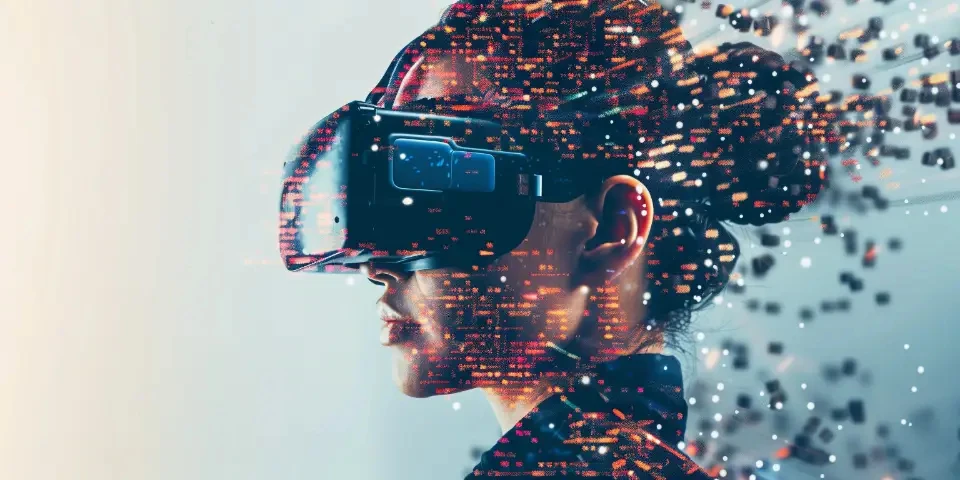AI-powered smart homes Making our lives easier, one device at a time
As technology continues to advance, our homes are becoming smarter and more connected. AI-powered smart homes are revolutionizing the way we live, making our lives more convenient, efficient, and comfortable. From voice-controlled assistants to automated appliances, here are some key aspects of AI-powered smart homes:
Voice-controlled assistants
One of the most popular and convenient features of smart homes is voice-controlled assistants like Amazon Alexa and Google Assistant. These virtual assistants can perform a wide range of tasks, from setting timers and playing music to controlling smart home devices and providing information. With just a simple voice command, you can turn on the lights, adjust the thermostat, or even order groceries online.

These voice-controlled assistants use natural language processing and AI algorithms to understand and respond to voice commands, making them a seamless and intuitive way to interact with your smart home. They continue to improve over time, learning your preferences and becoming even more personalized.
Automated appliances
AI-powered smart homes feature automated appliances that can simplify our daily routines. For example, smart refrigerators use AI algorithms to monitor and manage the inventory, alerting you when certain items are running low or when they are about to expire. They can even generate a shopping list for you and order groceries directly from your favorite store.
Similarly, AI-enabled washing machines can automatically determine the optimal settings for each load based on factors like fabric type and color, saving you time and energy. These appliances can also be controlled remotely via smartphone apps, allowing you to start or monitor the progress of a wash cycle from anywhere.
Energy efficiency
AI-powered smart homes are also focused on energy efficiency, helping us reduce our carbon footprint and save on utility bills. Smart thermostats, for instance, use AI algorithms to learn your temperature preferences and adjust the settings accordingly, ensuring optimal comfort while minimizing energy wastage.
Furthermore, these thermostats can analyze data from external sources such as weather forecasts and occupancy patterns to make intelligent decisions about temperature control. They can also be integrated with other smart devices like motion sensors, allowing them to automatically adjust settings when no one is present in the room.
Security and surveillance
Enhanced security is another key benefit of AI-powered smart homes. Smart cameras and doorbell cameras equipped with AI algorithms can detect and recognize faces, send real-time alerts, and even differentiate between familiar and unfamiliar individuals. They can also be programmed to track specific objects or areas of interest, providing an added layer of security.
In addition, AI-powered security systems can learn and adapt to your daily routines, automatically arming and disarming when you leave or return home. They can also integrate with other devices, such as smart locks, to provide a comprehensive security solution.
Health and wellness
AI-powered smart homes are helping us prioritize our health and wellness. For example, smart beds can monitor your sleep patterns, adjusting the mattress firmness and temperature to ensure a comfortable night's sleep. They can also track vital signs like heart rate and breathing patterns, providing valuable insights for optimizing your sleep quality.
Additionally, smart mirrors equipped with AI technology can analyze your skincare routine, providing personalized recommendations and tracking the effectiveness of various products. They can also display exercise routines and provide real-time feedback, making it easier to stay active and fit.
Entertainment and media
AI-powered smart homes have transformed the way we consume entertainment and media. Smart TVs can recommend personalized content based on your viewing habits and preferences, ensuring that you never run out of something to watch. They can also integrate with voice-controlled assistants, allowing you to control your television using simple voice commands.
Furthermore, AI algorithms can analyze and categorize your music preferences, creating personalized playlists and recommending new songs and artists that align with your taste. This level of personalization enhances our entertainment experiences and saves us time searching for content.
Common FAQs:
1. Are AI-powered smart homes safe from hacking?
While all connected devices carry some level of risk, AI-powered smart homes are built with security in mind. Manufacturers implement encryption protocols and regularly release software updates to address vulnerabilities. By following best practices such as using strong passwords and keeping software up to date, you can minimize the risk of hacking.
2. Can I control my smart home devices when I am away?
Yes, most AI-powered smart home devices can be controlled remotely through smartphone apps. As long as you have an internet connection, you can monitor and control your devices from anywhere in the world.
3. Will AI-powered smart homes replace human interaction?
AI-powered smart homes are designed to enhance our lives, not replace human interaction. While these technologies automate certain tasks and provide convenience, they cannot replace the emotional connection and social interactions that humans require. Ultimately, it is up to us to strike a balance between technology and human interaction.
References:
1. Stewart, R. (2020). How AI will change your life. Wired.
2. Patel, N. (2019). The Future of Smart Homes: AI, IoT, and Energy Efficiency. Forbes.
Explore your companion in WeMate